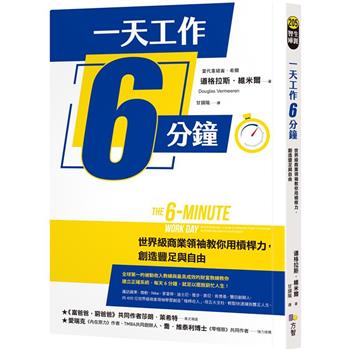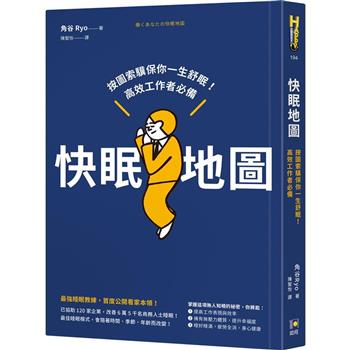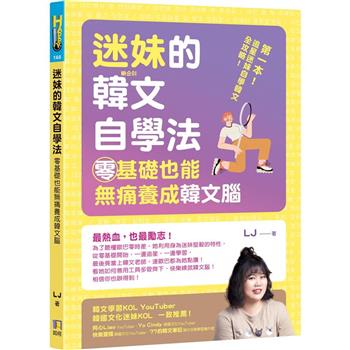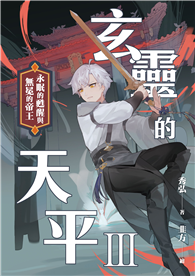章節試閱
第四章
我們走下樹屋剩餘的臺階。這數列讓我感覺似曾相識,但我想不出是為什麼。
「還有誰覺得這些數字似曾相識嗎?」我問,坐在最底下的臺階。吉米坐在我旁邊,其他人則圍成半圓形站著。
除了爸爸和媽媽以外,大家都搖頭。「沒錯,確實感覺似曾相識。」爸爸說:「不過我不曉得為什麼。」
「我也是。」媽媽說:「但沒錯,確實很熟悉。」
「那些不是《LOST 檔案》 裡面的數字,對吧?」溫蒂說道,我搖搖頭。
「說不定那是座標?」納札爾說:「像經度和緯度?」
「我不這麼覺得,因為經緯度通常是以度、分、秒來標示的。」我說:「這串數字太長了。」
「也許第四個數字是秒的小數?」伊萊莎問道。
「伊萊莎,我不這麼覺得。」我說,沒有看她。
「但檢查一下也不會怎麼樣,對吧?俠洛?」溫蒂說。我瞪著她搖搖頭,不過她也不是在徵求我的同意。
伊萊莎拿出手機,輸入緯度二十一度十三分八點五秒,經度三度兩分一點一秒。
她吐出一口氣,「除非詹姆斯能在放學後到現在的這段時間內,飛到阿爾及利亞南部的沙漠,否則它們就不是經緯度座標。」
「納札爾,這有可能是日期嗎?」溫蒂問。納札爾是我們的常駐歷史專家,所以若有任何人能回答這個問題,絕對就是他了。
「也許,但可能不是使用公曆。」納札爾解釋:「如果我們把數字分成兩部分,可以解讀成西元八○五年第十三個月第二十一天,或西元二一一三年第八個月第五天。但公曆沒有第十三個月,而詹姆斯也不可能預知未來。」
「其他的曆法呢?」爸爸問:「像猶太或伊斯蘭曆?」
「這個嘛,就我所知,沒有任何曆法有十二個以上的月分,但有些曆法早在公曆出現的很久以前就開始流傳,所以二一一三年實際上可能指的是過去,而不是未來。」納札爾說:「舉個例子,希伯來曆就會說西元二○○○年實際上是五七六○年。」
「那就表示希伯來曆的二一一三年相當於公曆的西元前一六四九年。」我說。
「那個時候發生了什麼事?」吉米問:「有一場大戰還是什麼嗎?」
納札爾聳聳肩,「我的歷史知識並不完美。」
「據網路所說,埃及的中王國時期結束了。」爸爸說。
「會不會是不同的曆法系統呢?」我問:「或是不同的座標系統?」我滿懷希望的抬頭看向爸爸媽媽。
「山姆,我不這麼認為。」爸爸說:「要是我們能弄清楚它們為什麼感覺這麼熟悉就好了……」
我真的被難倒了,對這些數字可能代表什麼毫無頭緒。
其他人好像也一樣。我開始害怕我們永遠也無法找到花生,尤其是我們才到第二關就卡住了。
「說不定跟數學有關?」伊萊莎終於開口說:「所以你們才全都覺得很熟悉?」
「或許吧!」我說:「但是有這麼多不同的數字系統、方程式與常數,我實在不曉得這些數字會對應什麼。」
「數字在遞減,對吧?」她說:「有變小的模式嗎?」
我再次看向這些數字,精神為之一振,「對吔!確實有模式。是單純的減法模式。把第一個數字減掉第二個數字,就得到第三個數字。這個數列裡任三個連續數字都是這樣,所以二十一減十三等於八,十三減八等於五,以此類推。」
「但那還是沒有真正告訴我們任何事呀!」媽媽說。
就在這時,爸爸大喊:「我懂了!這是斐波那契數列!我不敢相信我竟然沒有馬上看出來!」
我盯著那些數字:21、13、8、5、3、2、1、1。爸爸說得沒錯!是斐波那契數列,只是順序倒過來而已!我確信如果我們沒有這麼擔心花生,爸爸和我早就注意到了。
「為什麼要破壞納奇?」吉米皺著鼻子問。
「什麼?破壞?什麼?」溫蒂問,她看起來非常困惑。
「麥可叔叔說『非破納奇』啊?」
「是斐波那契,吉米。」我說:「他是一位義大利數學家,印度-阿拉伯數字系統就是在他的幫助下傳遍歐洲,成為當今全世界最普及的數字系統。斐波那契數列有助於描述自然界中的許多螺旋,包括DNA 螺旋、花瓣分枝、颶風,甚至是銀河的螺旋等。」
「好,所以那是倒過來的斐波那契數列,」媽媽說道:「那對我們有什麼幫助呢?」
我們的興奮之情消逝得和它出現時一樣突然。我們現在知道那串數列是什麼了,卻不知道它該引領我們走向何方。像我剛才說的,斐波那契數列在大自然中隨處可見,意味著它能出現在宇宙的任何地方。事實上,我敢說一旦我們找到多重宇宙存在的證據,我們就會發現無限的宇宙以螺旋狀排列,並完全符合斐波那契數列。
「嘿!那科學中心外面的臺階呢?」吉米說:「根據剛才的標示,它們是『非破納奇』臺階,對不對?」
Chapter Four
We walked down the rest of the steps of the tree house. The number sequence seemed familiar to me, but I couldn’t figure out why.
“Do these numbers seem familiar to anyone else?” I asked, sitting on the bottom step. Jimmy sat next to me, while the rest stood around in a semicircle.
Everyone shook their heads except Mom and Dad. “Yes, it does seem familiar,” Dad said, “but I don’t know why.”
“Me either,” Mom said, ”but yes, really familiar.”
“They’re not the Lost numbers, right?” Wendy said. I shook my head.
“Maybe they’re coordinates?” Nazhar said. “Like latitude and longitude?”
“I don’t think so, as that’s usually measured in degrees, minutes and seconds,” I said. “There are too many numbers here.”
“Maybe the fourth numbers are the decimal places after the seconds?” Eliza asked.
“I don’t think so, Eliza,” I said, not looking at her.
“But it wouldn’t hurt to check, right, Cher Lock?” Wendy said. I glared at her and shook my head, not that she had been asking for my permission.
Eliza took out her phone and entered the numbers as 21 degrees, 13 minutes and 8.5 seconds latitude, and 3 degrees, 2 minutes and 1.1 seconds longitude.
She let out a puff of air. “Unless James was able to fly to the deserts of southern Algeria between now and when school let out, they’re not latitudinal and longitudinal coordinates.”
“Could they be dates, Nazhar?” Wendy asked.
Nazhar was our resident history expert, so if anyone would know, it would be him.
“Maybe, but probably not using the Gregorian calendar,” Nazhar explained. “If we take half the numbers, that would mean the first four numbers can be read either as the 21st day, 13th month of the year 0805, or as the year 2113, 8th month and 5th day. However, there’s no 13th month in the Gregorian calendar and there’s no way James can predict the future.”
“What about other calendar systems?” Dad asked. “Like the Jewish or Islamic calendars?”
“Well, as far as I know, no calendar has more than 12 months, but some calendars start much earlier than the Gregorian calendar, so the year 2113 would actually be in the past and not the future,” Nazhar said. “For example, the Hebrew calendar would say that the year 2000 is actually the year 5760.”
“That would make 2113 on the Hebrew calendar equivalent to the year 1649 BCE on the Gregorian,” I said.
“What happened then?” Jimmy asked. “Was there a great battle or something?”
Nazhar shrugged his shoulders. “My knowledge of history isn’t perfect.”
“The Middle Kingdom ended in Egypt, according to the internet,” Dad said.
“Could it be a different calendar system?” I asked. “Or a different coordinate system?” I looked up at Mom and Dad hopefully.
“I don’t think so, Sam,” Dad said. “If we could just figure out why they seem so familiar…”
I was really stumped, and had no idea what these numbers could mean. And it seemed everybody else was too. I was starting to fear we would never find Watson, especially if we were stuck on only the second riddle.
“Maybe it’s a maths thing?” Eliza finally said. “That’s why it seems familiar to all of you?”
“Maybe,” I said, “but there are so many mathematical number systems, equations and constants that I have no idea which one these numbers would correspond to.”
“Well, they’re decreasing, right?” she said. “Is there a pattern in how they’re getting smaller?”
I looked at the numbers again and I perked up. “Yeah, there is a pattern. It’s a simple subtraction pattern. You subtract the second number from the first, and you get the third. And this works with any three consecutive numbers in series, so that 21 minus 13 equals 8, and 13 minus 8 equals 5, and so on.”
“But that still doesn’t really tell us anything,” Mom said.
Just then, Dad shouted, “I got it! It’s Fibonacci! I can’t believe I didn’t get it right away!”
I stared at the numbers: 21 13 8 5 3 2 1 1. Dad was right! It was the Fibonacci sequence, but backwards! I was sure if we hadn’t been so worried about Watson, Dad and I would have noticed that sooner.
“Why would lying to pasta help?” Jimmy asked, wrinkling his nose.
“What? Pasta? What?” Wendy said, looking confused.
“Uncle Mike said ‘fib-a-gnocchi’?”
“Fibonacci, Jimmy,” I said. “He was an Italian mathematician who helped spread the Hindu-Arabic numeral system throughout Europe, and it is now the most common numeral system in the world. The Fibonacci sequence helps to describe many spirals found in nature, including DNA spirals, petal branchings, hurricanes and even galactic spirals.”
“Okay, so it’s the backwards Fibonacci sequence,” Mom said. “How does that help us?”
Our excitement disappeared as suddenly as it had appeared. We knew what the number sequence was now, but we didn’t know where it was supposed to lead us. As I had said, the Fibonacci sequence occurred all over nature, and that could literally mean anywhere in the universe. In fact, I was sure that once proof of the multiverse was discovered, we would find that the infinite universes were arrayed in spirals conforming to the Fibonacci sequence.
“Hey! What about the steps outside the Science Centre?” Jimmy said. “According to the sign just now, they’re fib-a-gnocchi steps, right?”
第四章
我們走下樹屋剩餘的臺階。這數列讓我感覺似曾相識,但我想不出是為什麼。
「還有誰覺得這些數字似曾相識嗎?」我問,坐在最底下的臺階。吉米坐在我旁邊,其他人則圍成半圓形站著。
除了爸爸和媽媽以外,大家都搖頭。「沒錯,確實感覺似曾相識。」爸爸說:「不過我不曉得為什麼。」
「我也是。」媽媽說:「但沒錯,確實很熟悉。」
「那些不是《LOST 檔案》 裡面的數字,對吧?」溫蒂說道,我搖搖頭。
「說不定那是座標?」納札爾說:「像經度和緯度?」
「我不這麼覺得,因為經緯度通常是以度、分、秒來標示的。」我說:「這串數字太...
推薦序
導讀:翻開英文小說,快樂閱讀提升語言能力
文/張甯亞(銘傳大學英文講師暨青少年小說閱讀推廣者)
學英語,為什麼要讀英文小說?
根據我的教學經驗,讀小說是學習語言的最佳途徑。你學英語時,是不是和大多數人一樣,從背單字與練習文法句型開始,閱讀也只讀課文呢?要是你已經能讀懂課文,建議你可以挑戰閱讀小說哦!小說哪裡好?首先,小說使用大量單字與句型,除了反覆出現的單字容易留下印象,搭配情節也更好記憶單字的意思與用法。再者,小說對白自然呈現母語人士的口語表達,有些難以解釋的規則與片語,靠日常對話熟悉,比死背更有效。最後,小說栩栩如生描繪場景、人物的技巧,更是學習寫作的最佳範本。
在眾多題材中,我尤其推薦由偵探小說入門,在閱讀中不僅可以培養觀察力與邏輯推理能力,刺激的解謎過程更讓人手不釋卷,一不留神讀完整整一本英文小說,更可建立成就感。
如何運用小說提升英語能力
學習英語主要有兩種方法——「從上而下」(Top-down)和 「從下而上」(Bottom-up)。Bottom-up 是較傳統、適合打基礎的方式,從認識字母、單字開始,再延伸到句子,最後才教閱讀; Top-down 則是憑藉上下文與背景知識,直接理解內容全貌。兩種方式各有優點,融合使用能大幅提升學習效率。
以「夏洛克與花生」系列為例,閱讀與練習的步驟大致如下:
1. Top-down:認識書中場景,如多去了解新加坡地理位置、歷史背景、風土民情,以及文化特色,閱讀英文時就比較容易進入狀況。可運用中譯版面底下的注釋,或上網搜尋更多資料。
2. Bottom-up:列出重點單字,確保自己能夠理解詞彙的意義與發音,可清楚朗讀句子。書中的口說練習有音檔協助,是初學者的好幫手。
3. Top-down+Bottom-up:閱讀後嘗試重述故事,運用書中學到的單字與句型,列出重要角色、場景、事件,例如:誰是主角?(Who is the main character?)發生的地點在哪裡?(Where does it take place?)發生了什麼事?(What happened?)說出或寫下大意後,再聽一次有聲書對答案,同步提升聽力、發音與理解能力。
閱讀英文小說的好處,除了能用較為有趣的方式學習英語外,還能培養閱讀習慣,體會多元文化觀點,也為文學素養扎根。現在就翻開「夏洛克與花生」系列,讓說得一口好英語的夏洛克與花生帶你一起暢遊英語的冒險世界!
導讀:翻開英文小說,快樂閱讀提升語言能力
文/張甯亞(銘傳大學英文講師暨青少年小說閱讀推廣者)
學英語,為什麼要讀英文小說?
根據我的教學經驗,讀小說是學習語言的最佳途徑。你學英語時,是不是和大多數人一樣,從背單字與練習文法句型開始,閱讀也只讀課文呢?要是你已經能讀懂課文,建議你可以挑戰閱讀小說哦!小說哪裡好?首先,小說使用大量單字與句型,除了反覆出現的單字容易留下印象,搭配情節也更好記憶單字的意思與用法。再者,小說對白自然呈現母語人士的口語表達,有些難以解釋的規則與片語,靠日常對話熟悉,比死...
作者序
編輯序:給想探索世界的你,讓英語成為你的雙翼
在國際化社會中,英文能力只會越來越受重視,隨著「2030雙語國家政策」推動,未來你會接觸到更多英語吧!但你是否很難想像,在臺灣生活的自己使用英語的模樣呢?
與我們距離不遠的新加坡,儘管國民大多是華人,卻都擅長使用英語溝通,這點讓他們在國際貿易、科技發展上具備極大優勢。語言、文化更融合許多不同族群的風情,豐富又多元。很值得我們多多了解!
來自新加坡的「夏洛克與花生」系列,不但角色生動、情節活潑,還具備單字量多且文法平易近人的優點,很適合中小學生作為從英文繪本、短文進入小說閱讀的橋梁,因此小熊出版特別將本系列編輯成「中英雙語讀本+英語有聲小說」的形式。先讀中文小說,掌握情節後,再閱讀英文更容易理解;搭配專業錄製的英語有聲書,還可鍛鍊聽力、培養語感。
聽、讀以後,口說練習也不可少。「Speak English with Sherlock Sam」專欄收錄六句實用生活英語口說練習音檔,對照書中場景、閱讀情境說明,了解句子的使用場合後,聆聽音檔並反覆開口練習,有機會時就可以應用於生活中。書末的「Vocabulary Challenge」則提供小有難度的英文克漏字測驗,看完小說後,別忘了測試自己還記得多少單字哦!
期待「夏洛克與花生」系列除了幫助你精進英文能力,更能帶領你認識並尊重不同文化,開拓眼界,獲得探索世界的力量!
編輯序:給想探索世界的你,讓英語成為你的雙翼
在國際化社會中,英文能力只會越來越受重視,隨著「2030雙語國家政策」推動,未來你會接觸到更多英語吧!但你是否很難想像,在臺灣生活的自己使用英語的模樣呢?
與我們距離不遠的新加坡,儘管國民大多是華人,卻都擅長使用英語溝通,這點讓他們在國際貿易、科技發展上具備極大優勢。語言、文化更融合許多不同族群的風情,豐富又多元。很值得我們多多了解!
來自新加坡的「夏洛克與花生」系列,不但角色生動、情節活潑,還具備單字量多且文法平易近人的優點,很適合中小學生作...
目錄
編輯序
人物介紹
第一章:家人的回憶
第二章:惡魔的遊戲
第三章:第一道關卡
第四章:解密數字
第五章:中文的考驗
第六章:扳回一城
第七章:對決邪惡主謀
第八章:花生的遭遇
第九章:倒楣的原因
第十章:主謀的自白
英文小說注釋符號說明
導讀
Chapter One
Chapter Two
Chapter Three
Chapter Four
Chapter Five
Chapter Six
Chapter Seven
Chapter Eight
Chapter Nine
Chapter Ten
口說練習Speak English with Sherlock Sam
單字測驗Vocabulary Challenge
敘述人物 Meet the Supper Club!
編輯序
人物介紹
第一章:家人的回憶
第二章:惡魔的遊戲
第三章:第一道關卡
第四章:解密數字
第五章:中文的考驗
第六章:扳回一城
第七章:對決邪惡主謀
第八章:花生的遭遇
第九章:倒楣的原因
第十章:主謀的自白
英文小說注釋符號說明
導讀
Chapter One
Chapter Two
Chapter Three
Chapter Four
Chapter Five
Chapter Six
Chapter Seven
Chapter Eight
Chapter Nine
Chapter Ten
口說練習Speak English with Sherlock Sam
單字測驗Vocabulary Challenge
敘述人物 Meet the Supper Club!
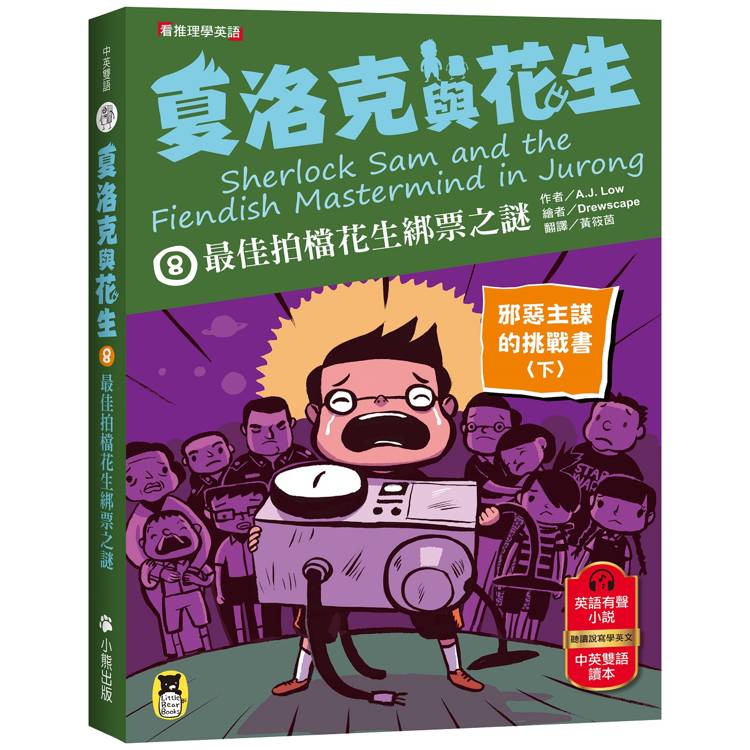
 共
共  英語,中文也稱英文,是一種西日耳曼語言,誕生於日德蘭半島和萊茵河流域,如今具有全球通用語的地位。「英語」一詞源於遷居英格蘭的日耳曼部落盎格魯,而「盎格魯」得名於臨波羅的海的半島盎格里亞。菲士蘭語是與英語最相近的語言。英語詞彙在中世紀早期受到了其他日耳曼族語言的大量影響,後來受羅曼族語言尤其是法語的影響。英語是將近六十個國家唯一的官方語言或官方語言之一,也是全世界最多國家的官方語言。它是英國、愛爾蘭、美國、加拿大、澳洲和紐西蘭最常用的語言,也在加勒比、非洲及南亞的部分地區被廣泛使用。英語是世界上母語人口第三多的語言,僅次於漢語和西班牙語。英語是學習者最多的第一外語,是聯合國、歐盟和許多其他國際組織的官方語言。它是使用最廣泛的日耳曼族語言,至少70%的日耳曼語族使用者說英語。
英語,中文也稱英文,是一種西日耳曼語言,誕生於日德蘭半島和萊茵河流域,如今具有全球通用語的地位。「英語」一詞源於遷居英格蘭的日耳曼部落盎格魯,而「盎格魯」得名於臨波羅的海的半島盎格里亞。菲士蘭語是與英語最相近的語言。英語詞彙在中世紀早期受到了其他日耳曼族語言的大量影響,後來受羅曼族語言尤其是法語的影響。英語是將近六十個國家唯一的官方語言或官方語言之一,也是全世界最多國家的官方語言。它是英國、愛爾蘭、美國、加拿大、澳洲和紐西蘭最常用的語言,也在加勒比、非洲及南亞的部分地區被廣泛使用。英語是世界上母語人口第三多的語言,僅次於漢語和西班牙語。英語是學習者最多的第一外語,是聯合國、歐盟和許多其他國際組織的官方語言。它是使用最廣泛的日耳曼族語言,至少70%的日耳曼語族使用者說英語。 